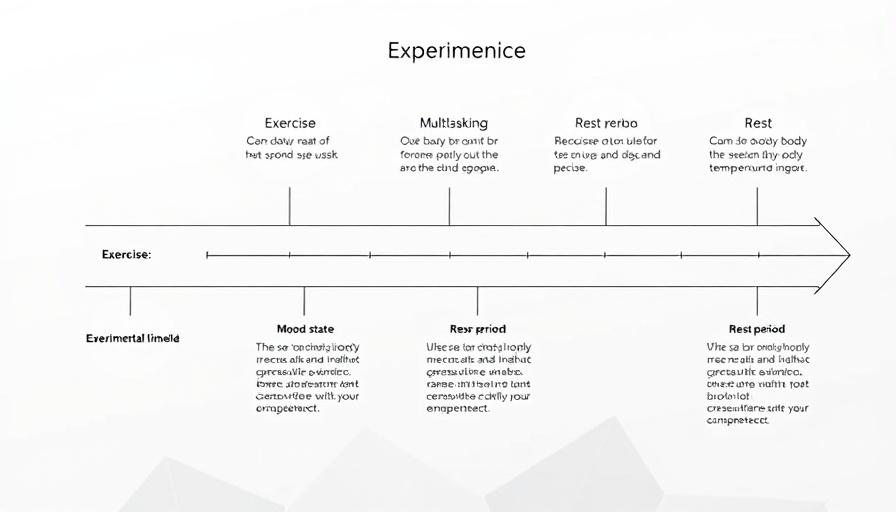
Exploring the Connection Between Multitasking Exercise and Sleep Quality
Recent research from the University of Tsukuba has unveiled an intriguing link between multitasking exercises and improved sleep quality in older women. As our understanding of health and wellness evolves, such insights are crucial in addressing the unique challenges faced by aging populations.
The Science Behind Sleep and Delta Power
The brain's delta power is a critical measure of sleep quality, with higher delta wave amplitudes indicating deeper, more restorative sleep. However, as individuals age, this delta power tends to decline, complicating sleep quality further due to hormonal changes. The recent study demonstrated that participating in low-intensity multitasking exercise can effectively enhance delta power during non-Rapid Eye Movement sleep stages, leading to sufficient restorative sleep. This finding not only offers potential relief for older adults suffering from sleep disturbances but also provides a basis for optimizing community health and wellness initiatives.
Health and Wellness Programs: A Game Changer for Seniors
With the growing emphasis on health and wellness programs, communities can now craft targeted interventions focused on the unique needs of older individuals. Incorporating multitasking exercises into health and wellness centers could significantly enhance vitality and well-being in senior populations. By blending cognitive and physical trainings, such programs could address sleep issues while simultaneously improving overall health.
Legacy of Multitasking in Modern Life
The intersection of cognitive and physical tasks isn’t new; from elderly bingo games to memory active workouts, societies have long engaged in activities that stimulate both mind and body. This research encourages us to look back and harness old practices through a modern lens, implementing structured programs that are grounded in scientific evidence.
Future Trends in Gerontology and Health
As the global population of seniors increases, issues surrounding their health and wellness will dominate public health discussions. The findings on multitasking exercises signify a potential shift towards holistic wellness approaches. Combining cognitive stimulation and physical activity could become a prevalent theme in future health trends, positioning these programs as essential components of optimal health and wellness strategies for older adults.
How to Implement Multitasking Exercises
For those looking to adopt multitasking exercises, consider introducing activities that integrate cognitive challenges with low-intensity physical movements. Simple tasks like dancing while solving puzzles or participating in group knitting while engaging in light aerobics can serve as introductory steps. Community health and wellness events can provide platforms for such activities, ensuring these strategies reach those who will benefit most.
In conclusion, the emerging evidence surrounding the benefits of multitasking exercises for sleep quality presents an exciting opportunity for public health initiatives focused on aging populations. By fostering collaboration among health and wellness businesses in San Antonio and elsewhere, we can build comprehensive programs that address the multifaceted needs of our seniors.
Take action today by exploring available health and wellness events in your community that focus on integrating multitasking training. Empower yourself and the seniors in your life to embrace healthier lifestyles through innovative approaches!
 Add Row
Add Row  Add
Add 




 Add Row
Add Row  Add
Add 


Write A Comment